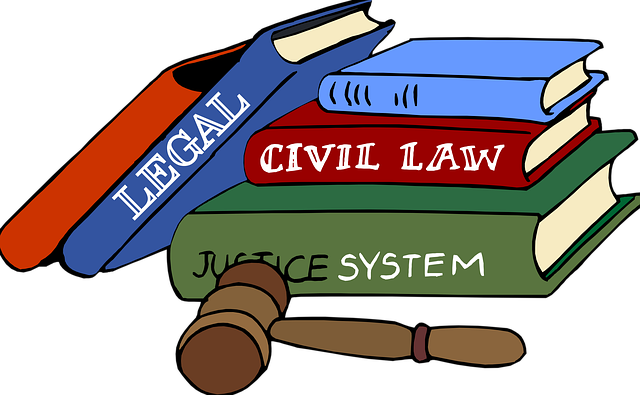Under the Fair Labor Standards Act (FLSA) and varying state regulations, employees have rights concerning fair compensation and work hours. The FLSA distinguishes between exempt and non-exempt employees, affecting their eligibility for overtime pay. Navigating these labor laws can be complex due to differences across federal and state jurisdictions. Employees dealing with wage and hour disputes should consult a labor law specialist to understand their rights and receive tailored advice. These experts can represent individuals in legal proceedings, ensuring fair treatment and resolving issues related to wage discrepancies, unpaid overtime, or incorrect employment classifications. For both employees and employers, expert legal counsel is vital for resolving disputes within the framework of labor law, whether through administrative processes or litigation. Keywords: labor law guidance, wage claims, employment rights, FLSA, state labor regulations, employment law attorney.
navigating the intricacies of wage and hour disputes can be a complex task for the employed. Understanding one’s rights under labor laws is paramount in such scenarios. This article serves as a comprehensive guide, elucidating the legal framework governing wages and hours, and emphasizing the critical role of legal professionals in addressing employment-related compensation claims. We will explore how to effectively challenge wage issues with expert guidance and outline key considerations when seeking professional help. With the right approach and support, employees can assert their rights under labor laws to secure fair compensation.
- Understanding Wage and Hour Disputes under Labor Laws: A Guide for the Employed
- The Role of Legal Professionals in Resolving Employment-Related Wage Claims
- Navigating the Complexities: How to Effectively Challenge Compensation Issues with Expert Guidance
- Key Considerations When Seeking Professional Help for Wage and Hour Disputes
Understanding Wage and Hour Disputes under Labor Laws: A Guide for the Employed

Under the ambit of labor laws, wage and hour disputes are a common area where employed individuals may seek legal recourse. Employees must be aware of their rights concerning fair compensation and reasonable work hours as stipulated by these laws. The Fair Labor Standards Act (FLSA) is a cornerstone of U.S. labor law, establishing minimum wage levels, overtime pay, recordkeeping, and child labor standards. Employed individuals should familiarize themselves with the specific provisions under this act, including the distinction between exempt and non-exempt employees, as this determines their eligibility for overtime pay and other protections.
Navigating wage and hour disputes can be complex, often requiring a thorough understanding of the nuances within labor law. Employment laws vary by state and locality, with some jurisdictions imposing more stringent requirements than federal standards. For instance, certain states have their own overtime thresholds, daily and weekly maximum work hours, and meal and rest break provisions that differ from federal regulations. Engaging with a professional who specializes in labor law can provide employed individuals with the guidance needed to address wage discrepancies, unpaid overtime, misclassification of employment status, or other related issues effectively. Such professionals can assess the specifics of an employee’s situation and advocate on their behalf for fair resolution under the law.
The Role of Legal Professionals in Resolving Employment-Related Wage Claims

Navigating the complexities of labor law when faced with wage and hour disputes is a task that often necessitates the expertise of legal professionals. These specialists possess a deep understanding of employment legislation, which governs the fair compensation and work hours of individuals who are employed. They can interpret intricate provisions within this body of law to assess the validity of claims related to minimum wage, overtime pay, and other compensation entitlements. Their role is pivotal in ensuring that both employers and employees are aware of their rights and obligations under the law, thereby fostering a fair and just work environment.
In the event of a dispute, legal professionals can represent either party, using their knowledge to advocate for the best possible outcome. They manage the litigation process from initial claim filing through to resolution, which may involve negotiating settlements or representing clients in court. Their involvement can significantly increase an employee’s chances of receiving the wages they are legally entitled to, while also ensuring that employers remain compliant with labor laws to avoid future disputes and potential legal penalties.
Navigating the Complexities: How to Effectively Challenge Compensation Issues with Expert Guidance

When faced with wage and hour disputes in the workplace, understanding labor laws becomes paramount for employees seeking to challenge compensation issues effectively. Employees who suspect their rights under employment law are being violated must first familiarize themselves with the specific statutes that govern their wages and hours worked. This includes federal and state regulations such as the Fair Labor Standards Act (FLSA), which sets forth minimum wage requirements, overtime pay standards, and recordkeeping guidelines for employers. Navigating these complex legal frameworks can be daunting without expert guidance, making the assistance of a seasoned attorney invaluable. These professionals are well-versed in the intricacies of labor law and can provide informed advice on how to proceed with your claim.
Engaging an attorney with specialized knowledge in employment law ensures that employees have a strong advocate to represent their interests. Such legal counsel can not only help in understanding the nuances of wage claims but also in gathering evidence, drafting complaints, and negotiating settlements. Employees should seek attorneys who have a proven track record of success in similar cases, as these professionals will be instrumental in resolving disputes and advocating for fair compensation. With their expertise, employees can confidently challenge their employers, pursue the wages they are rightfully owed, and uphold their rights within the employment framework.
Key Considerations When Seeking Professional Help for Wage and Hour Disputes

When navigating wage and hour disputes within the realm of employment, understanding labor laws is paramount. Professionals adept in labor law can provide clarity on complex issues such as overtime pay, minimum wage entitlements, and meal and rest period requirements. It’s crucial to engage with experts who have a deep knowledge of the Fair Labor Standards Act (FLSA) and applicable state laws, as these legal frameworks govern employment-related compensation. Additionally, these experts can assist in determining whether an employee has been wrongfully classified, or if their employer has violated wage payment stipulations, ensuring that your rights are protected and that you receive the full compensation you are entitled to under the law.
In the event of a dispute, it’s essential to act promptly and seek professional guidance. A qualified attorney specializing in labor law can assess the merits of your case, advise on the best course of action, and represent your interests in negotiations or legal proceedings. They can also help navigate the complexities of filing complaints with the Department of Labor or equivalent state agencies. Furthermore, these professionals can guide you through the process of collecting necessary evidence, such as pay stubs, employment contracts, and records of hours worked, which are vital for substantiating your claim and achieving a favorable resolution.
When faced with wage and hour disputes, understanding one’s rights under labor laws is paramount. Employed individuals often find themselves in need of expert legal guidance to navigate these complex issues effectively. This article has outlined the essential steps and considerations for those seeking professional help to address compensation claims. By leveraging the expertise of legal professionals specialized in employment law, workers can confidently challenge unjust wage practices and strive for fair remuneration. It is clear that with informed action and competent support, employees have the means to protect their rights and seek resolution under labor laws.
